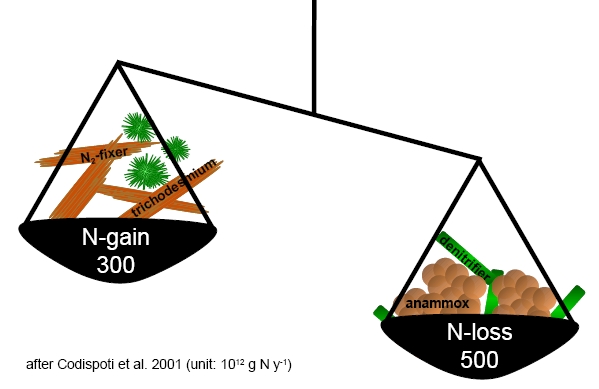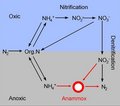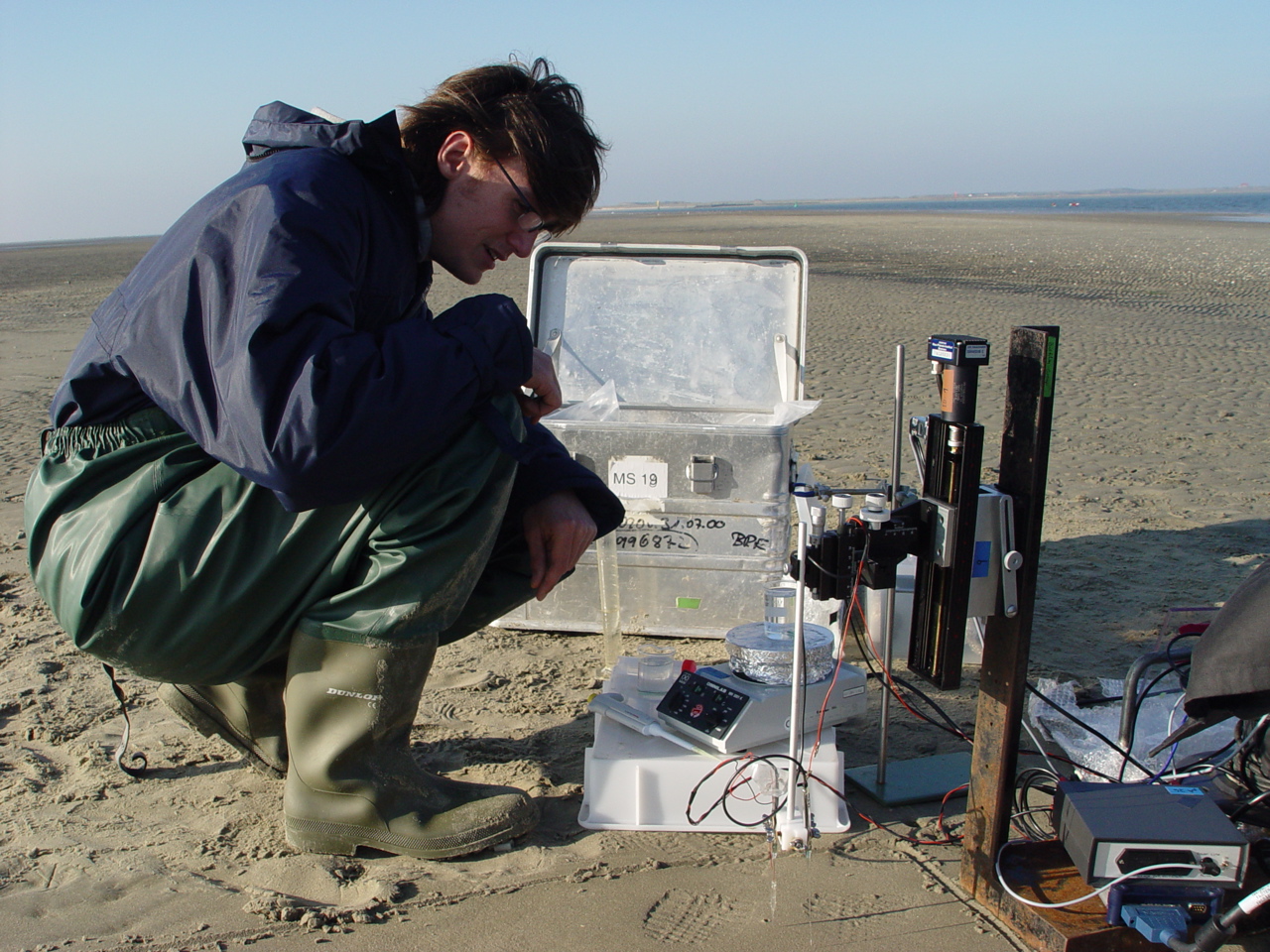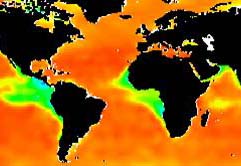Page path:
Projects
The Nutrient Group’s research focuses on the microbial processes that control the Ocean’s nutrient cycles. More specifically, we investigate the environmental regulation of these processes, and their effects on the global biogeochemical cycles. A combination of newly developed geochemical, microbiological and molecular ecological techniques is applied in our studies. One of the main themes the Nutrient Group is currently working on is the oceanic nitrogen cycle.
Nitrogen and Carbon Assimilation by Marine Microorganisms
Birgit Adam, Hannah Halm, Andreas Krupke, Marcel Kuypers, Gaute Lavik, Niculina Musat, Tomas Vagner and Abdul Sheik
Birgit Adam, Hannah Halm, Andreas Krupke, Marcel Kuypers, Gaute Lavik, Niculina Musat, Tomas Vagner and Abdul Sheik
In many oceanic regions, primary production is limited by the availability of fixed inorganic nitrogen (DIN=NO3-+NO2-+NH4+). The oceanic N-budget is unbalanced with N-loss apparently exceeding N-gain. If real such an unbalance could eventually lead to an end in algal growth. One of our main objectives is to determine if N-gain due to N2-fixation in the ocean is currently underestimated.
The Role of Anammox for the Oceanic Loss of Nutrient Nitrogen
Benjamin Brunner, Sergio Contreras, Jessika Füssel, Marcel Günter, Marlene, M. Jensen, Tim Kalvelage, Marcel Kuypers, Phyllis Lam, Gaute Lavik and Aurélien Paulmier
Benjamin Brunner, Sergio Contreras, Jessika Füssel, Marcel Günter, Marlene, M. Jensen, Tim Kalvelage, Marcel Kuypers, Phyllis Lam, Gaute Lavik and Aurélien Paulmier
Globally, 30-50% of oceanic N-loss occurs in oxygen minimum zone (OMZ) waters. For decades, oceanic N-loss has been attributed entirely to heterotrophic denitrification. We showed instead, that anammox is the main N-loss process in the Namibian and Peruvian OMZs (Kuypers et al., 2005; Hamersley et al., 2007). The occurrence and regulation of anammox, as well as its interactions with other N-cycling processes, are being investigated in the field as well as in the laboratory.
Nutrient Fluxes Between Marine Sediments and Overlying Waters
Gavin Collins, Dirk de Beer, Hang Gao, Moritz Holtappels, Marlene M Jensen, Arzhang Khalili Joel E. Kostka, Marcel. Kuypers Gaute Lavik, Bo Liu, Maciek Matyka, Lubos Polerecky, Frank Schreiber, and Sarah Sokoll
Gavin Collins, Dirk de Beer, Hang Gao, Moritz Holtappels, Marlene M Jensen, Arzhang Khalili Joel E. Kostka, Marcel. Kuypers Gaute Lavik, Bo Liu, Maciek Matyka, Lubos Polerecky, Frank Schreiber, and Sarah Sokoll
Fluxes in and out of the sediments play a key role in controlling the chemical composition of the Ocean. Hence, sediments are an important aspect of the research within the Nutrient Group.
Nutrient Cycling in Response to Global Change
Moritz Holtappels, Marlene M. Jensen, Tim Kalvalage Marcel Kuypers, Phyllis Lam, Gaute Lavik, Hannah Marchant, Wajih Naqvi, Yudi Nurul Ihsan, and Aurélien Paulmier
Moritz Holtappels, Marlene M. Jensen, Tim Kalvalage Marcel Kuypers, Phyllis Lam, Gaute Lavik, Hannah Marchant, Wajih Naqvi, Yudi Nurul Ihsan, and Aurélien Paulmier
In the past few decades, a decline in dissolved oxygen has been observed in global oceans, resulting in expanding oceanic OMZs and increasing coastal hypoxia that are likely exacerbated by the projected ocean warming and other anthroporgenic pressures. Meanwhile, rising atmospheric CO2 levels have caused ocean acidification worldwide, which would also continue in the future. These phenomena would likely have important implications for nutrient cycling in the oceans.



